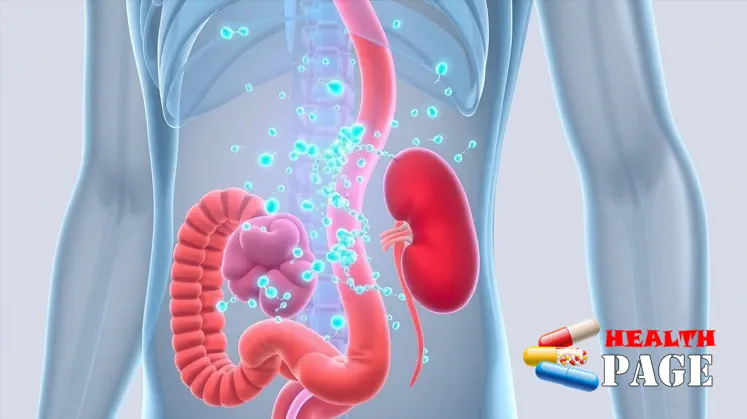Hypomagnesemia ICD 10: Comprehensive Guide to Diagnosis, Coding, and Management

Strong 8k brings an ultra-HD IPTV experience to your living room and your pocket.
Hypomagnesemia, a condition where magnesium levels are lower than normal, is more common than many think. With numerous underlying causes, it can lead to serious health problems if left untreated. Knowing how to properly diagnose and code it using ICD-10 is vital for healthcare providers. Correct coding helps in insurance claims, proper treatment planning, and tracking health trends. Effective management of this condition can improve patient outcomes and lessen the burden on healthcare systems.
Understanding Hypomagnesemia ICD 10
What is Hypomagnesemia?
Magnesium is a key mineral that helps your muscles, nerves, and bones stay healthy. It also supports energy production and blood sugar control. When magnesium drops below normal levels, it causes symptoms like muscle cramps, fatigue, and abnormal heartbeats. Sometimes, it develops slowly and stays hidden until serious issues appear. Common causes include poor diet, kidney problems, medications, and certain illnesses.
Epidemiology and Prevalence
Research shows hypomagnesemia affects up to 2% of the general population, but the rate jumps in hospitals—up to 60%. Patients with chronic diseases like kidney disease or diabetes are more at risk. For example, a study found that hospitalized patients with malnutrition or on diuretics often develop low magnesium. Real-world cases show this imbalance often goes unnoticed until complications, like arrhythmias, happen.
Pathophysiology
Low magnesium results from poor absorption, increased loss, or inadequate intake. Kidneys play a big part—they regulate magnesium but can over-excrete it if damaged. Magnesium also interacts with other electrolytes: low magnesium can cause or worsen low potassium or calcium. Experts agree magnesium is vital for heart health, neuromuscular function, and overall balance.
Diagnosing Hypomagnesemia
Clinical Evaluation
Doctors look for signs like muscle weakness, tremors, or irregular heartbeat. The patient’s history can reveal causes such as recent surgery, medications, or existing health issues. Physical exams might show twitching, abnormal reflexes, or fatigue, all clues pointing to magnesium imbalance.
Laboratory Tests
The main test measures serum magnesium levels. Normal ranges are typically 1.7 to 2.2 mg/dL. Levels below 1.7 mg/dL usually confirm hypomagnesemia. Additional tests include kidney function tests to check for loss through urine and electrolyte panels to assess related imbalances.
Differential Diagnosis
Conditions like hypocalcemia or hypokalemia can mimic hypomagnesemia symptoms. It’s essential to distinguish between these disorders. For example, if a patient has muscle cramps and low magnesium but normal calcium, magnesium deficiency is likely the cause. Proper diagnosis involves blood tests and sometimes, urine magnesium levels for clarity.
ICD-10 Coding for Hypomagnesemia
Overview of ICD-10 Coding System
ICD-10 provides a standard way to record and report medical diagnoses worldwide. Accurate coding is crucial for health records, billing, and research. Proper documentation ensures healthcare providers get paid correctly and helps in tracking disease trends.
ICD-10 Codes Specific to Hypomagnesemia
The primary code for hypomagnesemia is E83.42. It falls under metabolic disorders related to mineral imbalance. If hypomagnesemia is caused by an underlying issue, like malabsorption, additional codes should be added. When the diagnosis isn’t clear, a generic or unspecified code can be used.
Coding Guidelines and Best Practices
Use specific codes whenever possible, especially if you know the cause. For example, if hypomagnesemia is due to chronic kidney disease, combine E83.42 with the CKD code. Document details like severity—mild, moderate, or severe—to improve coding accuracy. For case scenarios, focus on clarity: specify whether it’s new or ongoing, and whether it’s caused by medication or illness.
Management and Treatment of Hypomagnesemia
Medical Interventions
Treatment often starts with magnesium supplements—oral tablets or IV infusions for severe cases. Adjusting or stopping medications that deplete magnesium, like diuretics, can help. Monitoring magnesium levels regularly during therapy prevents complications and ensures proper recovery.
Lifestyle and Dietary Changes
Eat foods rich in magnesium such as nuts, seeds, spinach, and whole grains. Reducing alcohol, caffeine, and certain medications also prevents magnesium loss. Educating patients on these choices can boost recovery and prevent recurrence.
Complications and Prognosis
Left untreated, hypomagnesemia can cause arrhythmias, seizures, or even coma. The good news? Early treatment usually restores magnesium levels quickly. Long-term management might include ongoing supplements or addressing root causes. Experts agree that timely intervention significantly improves prognosis.
Prevention Strategies and Patient Education
Early signs like muscle cramps or fatigue should prompt testing, especially in high-risk groups. Routine screening is a good idea for patients with kidney disease, diabetes, or on diuretics. Clinicians should encourage balanced diets and medication reviews to catch issues early.
Conclusion
Hypomagnesemia is a treatable but often overlooked condition. Proper diagnosis, accurate ICD-10 coding, and tailored treatment are key to improving health outcomes. Healthcare providers must stay vigilant and proactive about this electrolyte imbalance. Correct coding not only supports patient care but also benefits the entire healthcare system by tracking the condition’s prevalence and improving management strategies.
References
American Heart Association. (2020). Electrolyte Imbalance and Heart Disease.
World Health Organization. ICD-10 Classification.
Clinical guidelines for the management of electrolyte disturbances.
National Institutes of Health. Magnesium fact sheet for health professionals.
Note: IndiBlogHub features both user-submitted and editorial content. We do not verify third-party contributions. Read our Disclaimer and Privacy Policyfor details.




